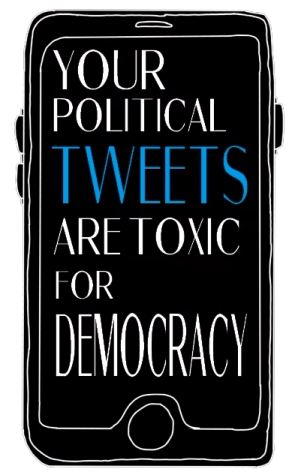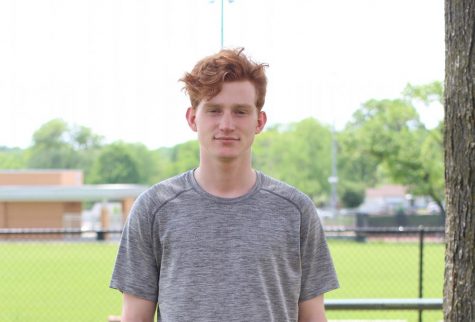Your political tweets are toxic to democracy

If you back the second amendment, then you are a Republican. If you support proposition C, then you are a Democrat. If you just Google searched proposition C, or the second amendment, then you probably are the average American youth; one whose political informativeness never stretches outside the walls of their high school government class. Fear not Googlers, it is cooler than ever to be a politically disengaged individual, for you are not an outcasted polar end of the political spectrum. It is better to avoid politics than to be labeled and packaged into one of two boxes.
I have never openly admitted my political leniency simply because it is not attractive; unattractiveness resulting from non absoluteness. As a result, I do not engage in online politics. I do not display my political beliefs because I understand they are not attractive. They will not get likes, retweets or reposts, etc. More than anything, I understand what I say will not change what my followers think. Social media politics is more a shouting match, than a debate. Ideally, diverse people could be brought together in debate to form the most inclusive form of politics in American history. Young adults in 2018 have undeniably more access to speak their own mind, and interact with the diverse opinions of others compared to young adults of a decade ago.
Indiscriminately, anyone young, old, white, black or purple could have access to political debates as long as they have access to the internet- seemingly as basic a necessity as any in 2018. The reality, however, is bickering from partisan lines and denouncement of the other side for the sake of a retweet or like. Most people use social media to enrich their own views, surrounding themselves with like minded individuals in what is known as echo chambers. Findings from a Pew Research study show that the majority of Republicans and Democrats say that they have only a few or no friends from the opposite party. Give the people limitless power, and they’ll squander it (thank you Enlightenment thinker Thomas Hobbes).
The divisive nature of social media has undeniably contributed to the growth we are seeing in partisan divide. American youth are being brought up in this hostile “us vs. them” environment, and the tools they are being given to engage in society are what is causing that divide. It is pressing the wrong message, teaching our youth to be divided, to dislike Liberals or Conservatives, instead of growing to develop their own views and have confidence in American democracy. Engage in face-to-face debates, join Young Conservatives or Young Democrats. Let your thumbs rest.
Little is more troubling than to have a change of opinion of a family member or friend due to a political post. Political activity paints an incorrect picture of who that person is to the general public. Grandma is now labeled for her rant about abortion instead of her insatiable extra-large chocolate chunk cookies. Think of the assumptions someone might make of your personality from off-hip political rants. If a political rant is all that consists of your personality, so be it, but do not display a piece that does not represent positively represent the whole.
For underaged American youth, political involvement is practically confined to school clubs and social media. With a political environment so polarized, and a social media platform often so toxic, it is extremely disheartening to our youth as to what they can do to engage in politics. The benefits of being involved, yet not having the power to vote, are outweighed by the messy complications of being put in one camp or the other. Young adults need time to develop and generate their own dynamic perspective, yet more importantly, develop as an individual. The most important lesson the rising generation needs to learn is to be a person, not a Democrat or a Republican.
Your donation will support the student journalists of Kirkwood High School. Your contribution will allow us to purchase equipment and cover our annual website hosting costs.

Interests: Austin Cleveland
Favorite quote: “If I had a gun with two bullets and I was in a room with Hitler, Bin Laden, and Toby, I would shoot Toby...

Interests: Speaking french, dancing terribly, playing one song on the piano, being a camp counselor, reading, marching banding, drawing, waking up too...






